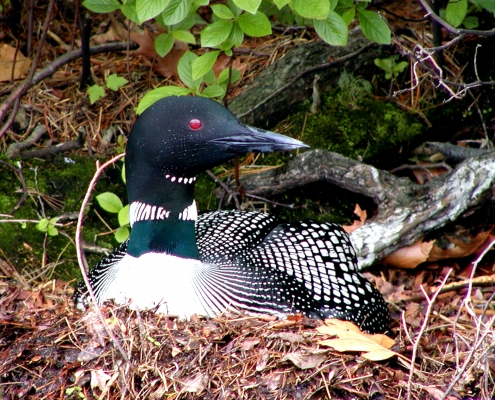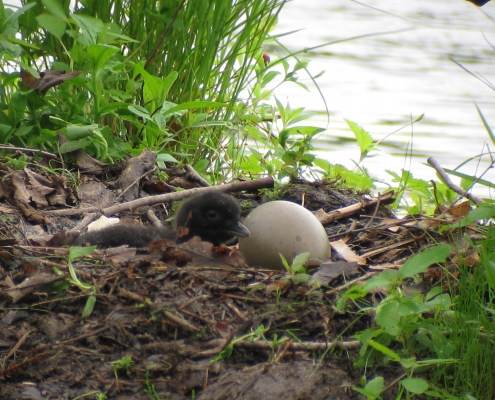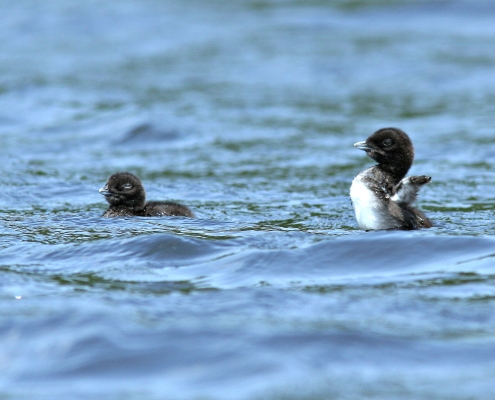Loons typically lay 1 or 2 eggs per nest attempt. Eggs are laid 1–3 days apart and are incubated, on average, for 27 days. Male and female loons share incubation duties equally, though research suggests that females tend to incubate more than males at night and towards the end of the nesting period. Chicks hatch roughly 24 hours apart. In the event of a nest failure loons may renest up to 3 times in the same year, though the willingness to renest may vary from pair to pair.
Adult loons provide high levels of parental care to their chicks until the chicks reach fledging age (typically around 12 weeks of age). Because of this extended period of care, loons have only one brood of chicks per year. Loon chicks are vulnerable to predation and attacks by intruding loons. Due to nest failures, loss of chicks, or years in which pairs do not nest, the average loon pair in New Hampshire successfully raises just one chick to fledging age every two years.
This slow rate of reproduction is counterbalanced by the loon’s long lifespan—the oldest loon of known age in New Hamsphire is over 30 years old. This means that although loons produce few chicks each year, they have the potential to produce many chicks over the course of their lifetime. Because of this, the viability of our loon population relies heavily on adult loon survival.




